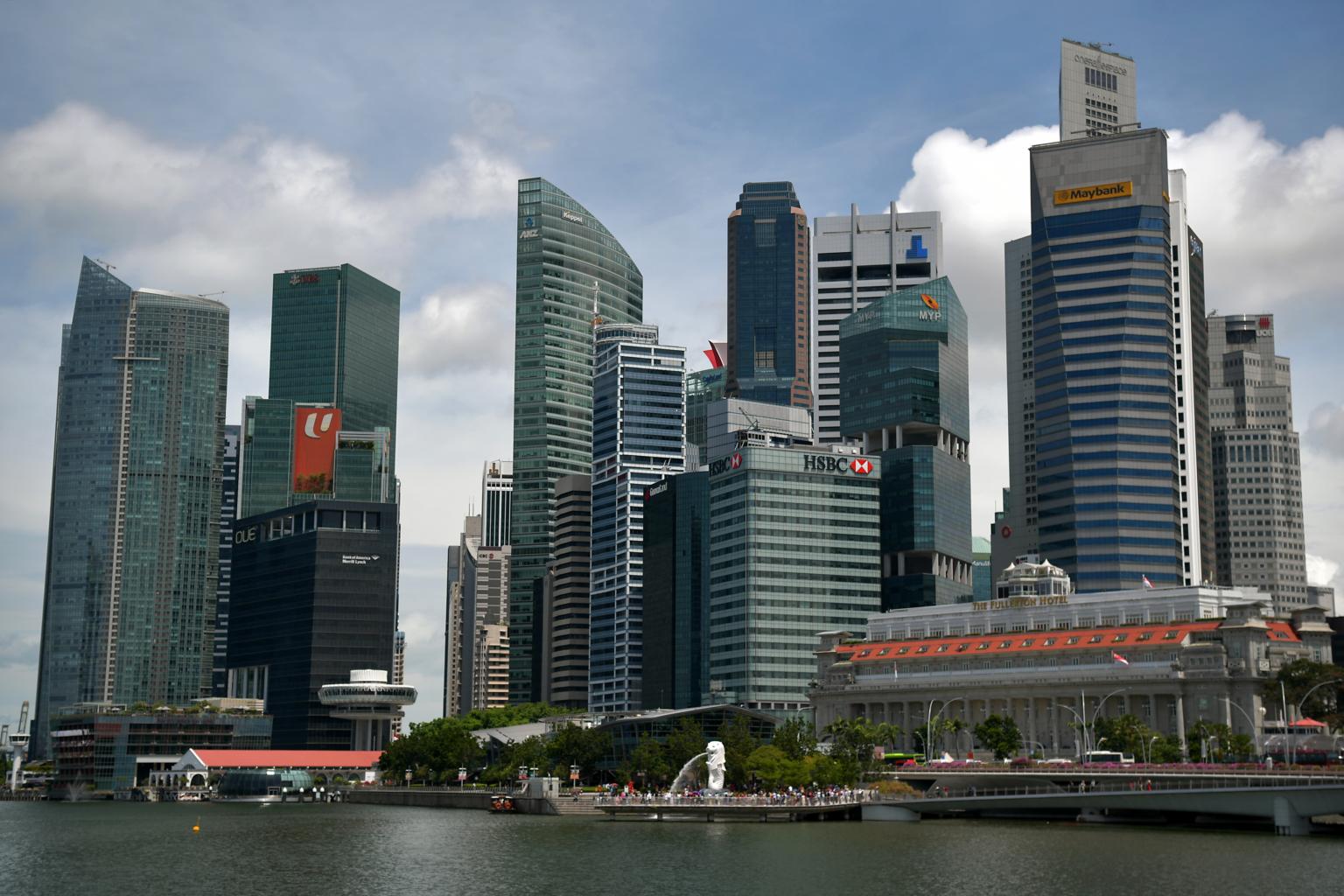Singapore's shift to Sora from Libor quickens as contracts jump fourfold
Sign up now: Get ST's newsletters delivered to your inbox

The Singapore central bank has played a part in the city-state's migration to the Singapore Overnight Rate Average.
PHOTO: ST FILE
SINGAPORE (BLOOMBERG) - Banks in Singapore are embracing a new benchmark for derivatives transactions as the financial hub prepares to transition away from the London Inter-Bank Offered Rate (Libor) by the end of September.
The outstanding amount of financial contracts pegged to the Singapore Overnight Rate Average (Sora) jumped fourfold to US$87.4 billion (S$118.7 billion) in July from May, according to data from clearing house LCH.
However, that is still a fraction of the US$1 trillion worth of products that are linked to the Singapore Swap Offer Rate (SOR), which is computed using Libor, figures from a steering committee set up by the central bank show.
Policymakers worldwide are ramping up efforts to phase out the use of Libor in the coming months, with some economies moving at a quicker speed than others. An orderly shift to a new benchmark rate may help accelerate the growth of Singapore's derivatives market, which records about US$116 billion worth of transactions daily - about a quarter of Hong Kong's volumes.
"Going forward, Singapore dollar-based interest rate derivatives are expected to be predominantly Sora-linked," said Mr Winson Phoon, head of fixed-income research at Maybank Kim Eng Securities in Singapore.
The derivatives used to switch to Sora from legacy rates will be liquid only when the transition is taking place, which "favours the early adoption of Sora-based interest-rate swaps", he said.
The global reform of the benchmark money market was sparked by evidence emerging in 2008 that European and US lenders had manipulated rates to benefit their own portfolios.
Last month, the United States reached a milestone in the Libor transition with a formal endorsement of forward-looking term benchmarks tied to the Secured Overnight Financing Rate (SOFR). Progress has been relatively slower in Japan, where several rates are still competing to succeed the yen Libor.
The Singapore central bank has played a part in the city-state's migration to Sora. Since August last year, the Monetary Authority of Singapore has been issuing floating-rate notes that are linked to the new benchmark. The outstanding amount of the securities has soared twentyfold to $9.9 billion in the past year.
There is a push for the transition as deadlines loom for the discontinuation of legacy rates, said Mr Eugene Leow, a rates strategist at DBS Bank in Singapore.
Also, a lot of products linked to Sora are being launched, so the "transition process is gathering steam", he added.


